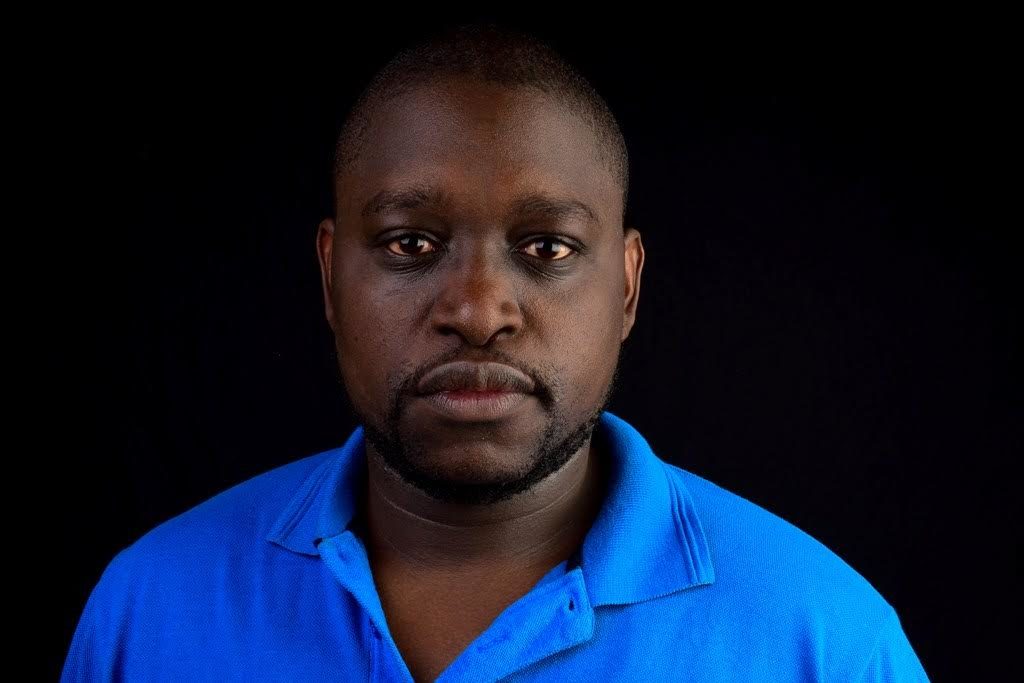Creative of the Week: Kimani Waweru

Kimani Waweru (@k1mani) is first and foremost a lover of cinema. He also enjoys music and a good TV show. He’s a writer and director and has written for several TV shows like ‘Jane & Abel’ and ‘Sumu la Penzi’ as well as a number of films for AMOF (Africa Magic Original Films). He’s recently directed a Television show, ‘Majaribu’.
1. Did you always know you wanted to be a filmmaker?
Yes I did. For as long as I can remember I’ve always loved film and I knew that filmmaking would be in my future in some way. However, it took a while to develop into a concrete idea because I felt that it was somehow out of my reach. I sill wouldn’t refer to myself as a filmmaker because I haven’t directed a film yet, only TV. Not quite yet, but soon, very soon.
2. What is your creative process like?
An idea emerges from the ether and attacks me, inserting itself into my mind. I, as fast as I can, try to note it down on paper or on my phone in as much detail as I possibly can. If I don’t do this I will forget it in its entirety. The idea could be a single sentence or a an idea for a character or anything really. Hours, days, weeks, months, or even years later I’ll come back to the idea and try to develop it into something. Is it a poem, short story, short film or a full-length film? If I can’t figure out how to use it, I leave it for another day. If the idea is feasible I’ll try to build on it as much as I can till I have something I’m happy with. Though you never truly feel like something you’ve created is finished.
3. How much do your life experiences influence your work?
Your art will always reflect the person that you are and the person that you are is determined by your life experiences. This is true about myself; the two protagonists of my first film script were basically two versions of myself.
4. Do you watch any of the shows you write/direct? If you do, what is it like to see your work on the screen and are there any complaints you may have?
I’ve watched most of the TV shows I’ve worked on but I haven’t been able to watch a single film yet. When I watch something I’ve written but not directed I like it when the actor or director put a spin on it that builds on what I had written and make it better. When watching something I’ve directed I tend to only see the mistakes I’ve made. I try not to judge myself too harshly because I’m just starting out as a director and use it as an opportunity to learn.
5. What are your thoughts on filmmaking especially writing and directing in Kenya and how do you think we can improve on the craft?
There is a lot of enthusiasm in the industry and a lot of young people are interested in getting into film which is very encouraging. However, I find that many Kenyan filmmakers don’t take the craft as seriously as they should. It’s quite possible to find that a professional in the industry has about the same level of non-technical knowledge about cinema as that of a casual Kenyan movie fan, which shouldn’t be the case. I also think that we need to slow down the process of making films/TV. The industry moves a bit too fast for quality art to be produced. This is hard to do because the faster you go the cheaper it is and the budgets producers are working on aren’t very big.
6. What challenges have you faced as a writer/director in Kenya?
As mentioned above, the speed that Kenyan TV and movies are made is not suitable for quality content to be produced. This is very frustrating as you know you could produce a better product if you just had the time to work on it but deadlines are calling and you have to deliver. If you can’t, someone else will be called in and you won’t be able to pay your rent. Getting work on a regular basis can also be challenging.
7. As a content creator, what are your thoughts on digital migration?
I believe it’s a good thing. Things are still settling as everyone is still figuring out their role in the digital market but once that’s done creators who are dedicated to producing quality content will flourish. There’s a clamoring for quality local content and Kenyans deserve to see local productions that can rival anything from US or UK. With giants like Netflix now entering the market, things are bound to be shaken up even more.
8. What advice would you give an aspiring filmmaker that you wish you had gotten when you were starting out?
Make a film, NOW! Don’t dilly dally saying it’s too hard or you don’t have time. Write something and go out and shoot it. Technology has advanced to a point where you can shoot a film on your phone. There’s no excuse. Go out and shoot something.
9. What work/project are you most proud of?
I’d say the short I worked on for the 48hr film project. It was the first time that I’d watched something I’d written with an audience. I was so nervous waiting for it to be screened and was terrified that it would be poorly received. But that didn’t happen, it got a very good response and applause at the end. The film went on to win the audience award for best film. It’s so reassuring to know that something you wrote actually connected with someone and they were moved by it.
10. Where do you see yourself in 5 years?
Hopefully having shot at least one feature length film and taken that film all the way to the Cannes film festival. If I ever make a film that gets into Cannes, I could die happy.
Bonus Question
11. If you were a character in an existing Film/TV show, who would you be and why?
That’s the easiest question ever. I’d be The Doctor from Doctor Who.
Why? All of time and space, that’s why.




Very interesting although im not in film industry
Thank you for reading!